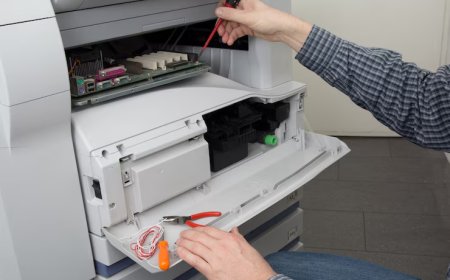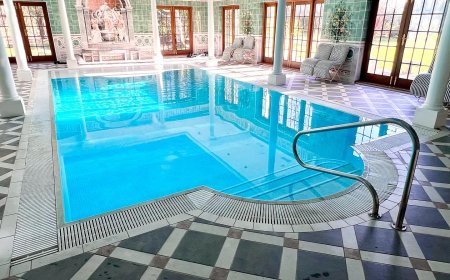Top 10 Antique Markets in Washington
Introduction Washington State is home to a vibrant and deeply rooted antique culture, where history lives in the grain of reclaimed wood, the patina of brass, and the whispered stories of forgotten objects. From the bustling streets of Seattle to the quiet corners of small-town barns, antique markets here offer more than just vintage goods—they offer connection. Connection to eras past, to craftsm
Introduction
Washington State is home to a vibrant and deeply rooted antique culture, where history lives in the grain of reclaimed wood, the patina of brass, and the whispered stories of forgotten objects. From the bustling streets of Seattle to the quiet corners of small-town barns, antique markets here offer more than just vintage goods—they offer connection. Connection to eras past, to craftsmanship that outlasted trends, and to communities that value preservation over disposability. But in a landscape flooded with mass-produced reproductions and unverified sellers, finding a market you can truly trust becomes a quest in itself.
This guide is not a list of the busiest or most advertised antique markets. It is a curated selection of the top 10 antique markets in Washington that have earned the trust of collectors, historians, and local residents over decades. These venues are chosen based on consistent authenticity, transparent vendor practices, long-standing reputations, and a commitment to preserving the integrity of antiques. Whether you’re searching for a 19th-century Persian rug, a mid-century modern lamp, or a rare first-edition book, the markets on this list offer more than merchandise—they offer confidence.
Trust in the antique world is earned through consistency. It’s the vendor who knows the provenance of every piece. It’s the market owner who verifies dates and makers. It’s the absence of flashy labels like “vintage” or “antique” when the item is merely retro. This guide prioritizes those who uphold standards—not those who simply capitalize on nostalgia.
Why Trust Matters
In the world of antiques, trust isn’t a luxury—it’s the foundation. Unlike buying a new item with a warranty or return policy, antique purchases often come with no receipts, no brand labels, and no guarantee of authenticity. What you see is what you get, and what you get may not always be what it claims to be. A chair labeled “18th-century French” might be a 1970s reproduction. A “vintage” watch could be a modern replica with a painted face. Without trust, the market becomes a minefield of misinformation.
Trust is built on three pillars: provenance, expertise, and transparency. Provenance refers to the documented history of an object—where it came from, who owned it, and how it was made. Expertise is the knowledge of the seller to identify materials, styles, and periods accurately. Transparency means openly sharing what is known and what is uncertain, without exaggeration or omission.
Markets that prioritize these pillars create environments where buyers feel safe to invest—sometimes significantly—in pieces that may appreciate in value or carry deep personal meaning. They also protect the cultural integrity of antiques by discouraging the circulation of fakes, which devalues genuine artifacts and erodes public confidence in the entire industry.
Washington’s most trusted antique markets understand this. They don’t just host vendors—they curate them. Many require vendors to provide documentation, undergo periodic reviews, or demonstrate a minimum number of years in the trade. Some even collaborate with local historians or museum curators to verify items. These are not flea markets with random stalls. They are institutions that treat antiques as heritage, not inventory.
Choosing a trusted market means choosing authenticity. It means walking away with a piece you can proudly display, research, and pass down—not one you’ll later discover was made in a factory last year. In an age of fast consumption, these markets stand as quiet rebellions against disposability, offering space for thoughtful acquisition and meaningful ownership.
Top 10 Antique Markets in Washington You Can Trust
1. Pike Place Market – Seattle
Pike Place Market isn’t just Seattle’s most famous landmark—it’s a living archive of Pacific Northwest culture. While many associate it with fish tosses and fresh produce, its upper levels house some of the most respected antique dealers in the state. Unlike typical tourist traps, Pike Place’s antique vendors are long-term tenants with decades of experience. Many have been operating since the 1970s and are known for their meticulous cataloging and ethical sourcing.
Here, you’ll find hand-carved wooden furniture from the Pacific Northwest’s logging era, early 20th-century glassware from local glassblowers, and Native American artifacts with documented provenance. Dealers often display detailed labels with maker’s marks, dates, and origins. The market management enforces strict guidelines: no reproductions labeled as originals, no unverified “Native art” without tribal affiliation documentation.
What sets Pike Place apart is its community accountability. Vendors are reviewed annually by a committee of historians and collectors. If a piece is later identified as mislabeled, the vendor is required to issue a full refund and undergo re-education. This system of accountability has made Pike Place a destination for serious collectors, including museum curators and university researchers.
2. The Antique Mall at Northgate – Seattle
Located just north of the city, The Antique Mall at Northgate is one of Washington’s largest consolidated antique spaces, housing over 120 independent vendors under one roof. What makes it trustworthy isn’t its size—it’s its curation. Unlike other large malls that accept any vendor who pays rent, Northgate requires each seller to submit a portfolio of their inventory for review before being approved.
Vendors must demonstrate a minimum of five years in the trade and provide provenance for items over $500. The mall employs a full-time antique specialist who conducts monthly spot checks, verifies signatures on ceramics, and authenticates silverware and jewelry. Items labeled “antique” must meet the U.S. Customs definition: over 100 years old. Reproductions are clearly marked as “replica” or “vintage-inspired.”
The mall also hosts quarterly educational events—free to the public—where specialists discuss identifying genuine versus fake Art Deco, dating glassware by pontil marks, and recognizing authentic mid-century modern design. This commitment to education reinforces its reputation as a place where knowledge is valued as much as merchandise.
3. Olympia Antique Market – Olympia
Located in the state capital, the Olympia Antique Market operates seasonally but has built a decades-long reputation for quality over quantity. Housed in a restored 1920s warehouse, the market hosts only 30–40 hand-selected vendors each season, chosen through a competitive application process. Applicants must submit photographs of their inventory, vendor history, and references from other markets or collectors.
Specialties include early Washington Territory documents, Civil War-era militaria with verified service records, and hand-forged ironwork from regional blacksmiths. The market is particularly known for its collection of Pacific Northwest ephemera—postcards, advertisements, and photographs that document the region’s evolution.
Each vendor is required to provide a written description of each item’s origin, and many include handwritten notes from previous owners. The market’s founder, a retired museum archivist, personally interviews every new vendor and maintains a digital archive of all items sold since 2005. This archive is accessible to researchers and buyers upon request, making Olympia Antique Market a rare blend of retail and historical preservation.
4. Bellingham Antique Center – Bellingham
Perched near the Canadian border, the Bellingham Antique Center is a haven for those seeking rare Pacific Northwest finds. The center is owned and operated by a family with four generations in the antiques trade, and their standards are uncompromising. Every item in the building has been vetted by at least two experts before being displayed.
Notable collections include pre-1900 maritime instruments from the Puget Sound shipping era, hand-bound books from early Seattle printers, and Native American baskets with documented tribal lineage. The center refuses to sell items with unclear origins, particularly those that may have been looted or improperly excavated.
They maintain a “Transparency Wall,” where buyers can scan QR codes next to select items to view high-resolution photos, historical context, and even video interviews with the original sellers or previous owners. This level of documentation is unheard of in most markets and has earned the center recognition from the Washington State Historical Society.
5. Spokane Antique Fair – Spokane
While many antique fairs are one-day events, the Spokane Antique Fair has evolved into a biannual institution that draws vendors from across the Inland Northwest. Held in the Spokane Convention Center, the fair is organized by the Spokane Antique Dealers Association, a nonprofit group dedicated to ethical collecting and preservation.
Vendors must be members in good standing, which requires adherence to a strict code of ethics: no misrepresentation, no imported fakes labeled as American-made, and no sale of items suspected of cultural appropriation. The association also mandates that all items over $250 come with a signed certificate of authenticity.
The fair is particularly renowned for its collection of early 20th-century farm tools, Depression-era glassware, and vintage textiles from the region’s agricultural communities. Attendees often include descendants of the original owners, who come to identify family heirlooms. The fair’s organizers maintain a public database of items sold each year, searchable by maker, era, and region—a tool invaluable for genealogists and historians.
6. Port Townsend Antique Market – Port Townsend
Nestled on the Olympic Peninsula, Port Townsend is a town preserved in time—and its antique market reflects that ethos. Held in the historic Jefferson Street district, this market is composed entirely of local artisans, restorers, and historians who sell only items they have personally sourced, restored, or inherited.
There are no mass-produced imports here. Instead, expect handcrafted furniture from 1880s shipwrights, original oil paintings of the Strait of Juan de Fuca, and brass navigational tools from the town’s maritime past. Every vendor is required to give a short oral history of each item they sell, which is recorded and archived by the market’s nonprofit partner, the Port Townsend Heritage Foundation.
The market also runs a “Restoration Corner,” where visitors can watch skilled craftsmen repair antique clocks, lamps, and doors using period-appropriate techniques. This transparency in process builds deep trust: if you buy a restored piece, you know exactly how it was treated and what was preserved versus replaced.
7. Tacoma Antique Row – Tacoma
Tacoma Antique Row isn’t a single market—it’s a curated stretch of three historic buildings on South 11th Street, each housing a different antique specialist. Together, they form a district where authenticity is enforced through collective reputation. Each shop owner has been in business for over 20 years and is known for their specialization: one focuses on Victorian silver, another on 1950s mid-century design, and the third on rare regional photography.
What unites them is a shared commitment to documentation. Each shop maintains a digital ledger of every item sold, including photographs, condition reports, and provenance notes. Buyers receive a printed certificate with each purchase, and the ledger is accessible online for future verification. This system has made Tacoma Antique Row a go-to destination for insurance appraisers and estate planners.
The shops also collaborate on annual exhibitions, such as “Tacoma Through Time: Objects of the City,” where they loan pieces to the Museum of Glass and the Washington State History Museum. This integration with academic and cultural institutions reinforces their credibility beyond retail.
8. Yakima Valley Antique Exchange – Yakima
Located in the heart of Washington’s agricultural region, the Yakima Valley Antique Exchange serves a community that values utility, durability, and heritage. The exchange operates as a consignment model, where sellers must prove ownership and provide background on how they acquired each item. Items are then evaluated by a panel of three experts before being accepted.
The market is especially known for its collection of early 20th-century farming equipment, vintage kitchenware from local canneries, and Native American beadwork with verified tribal affiliations. What distinguishes it is its focus on regional identity. Items that don’t reflect the Yakima Valley’s cultural or industrial history are rarely accepted.
Each consignor signs a statement affirming they did not acquire the item through unethical means. The exchange also partners with local schools to host “History Days,” where students bring family heirlooms to be appraised and documented. This community-centered approach has made it a trusted institution, not just a marketplace.
9. Wenatchee Valley Antique & Collectibles Show – Wenatchee
Wenatchee’s annual antique show is one of the most selective in the state. Organized by the Wenatchee Historical Society, it features only 50 vendors, each invited based on their reputation and inventory quality. The event is held in a 1930s civic center, and every item on display must be at least 75 years old—no exceptions.
Specialties include early apple orchard tools, vintage radio sets from the 1930s–1950s, and hand-written ledgers from local businesses dating back to the 1890s. The show’s organizers work closely with the Washington State Archives to verify documents and photographs. Items with unclear origins are not displayed, even if they are visually appealing.
Buyers are encouraged to ask questions, and vendors are trained to answer with specificity—not salesmanship. The show also offers a “Provenance Guarantee”: if an item is later proven to be misidentified, the buyer may return it for a full refund, no questions asked. This policy, rare in the industry, has made Wenatchee a destination for collectors who demand certainty.
10. Leavenworth Antique & Craft Fair – Leavenworth
Leavenworth, a Bavarian-themed village nestled in the Cascade Mountains, might seem an unlikely hub for American antiques—but its annual fair is one of the most respected in the state. The fair is organized by the Leavenworth Historical Preservation Society and features only items with documented ties to the Pacific Northwest or American frontier history.
Here, you’ll find hand-tooled leather goods from 19th-century trail merchants, original mining equipment from the Wenatchee gold rush, and hand-carved wooden toys from early settlers. The fair prohibits any imported European or Asian antiques unless they have a clear connection to Washington through ownership or migration history.
Each vendor must provide a written narrative of how the item came into their possession. These stories are displayed alongside the items, transforming each purchase into a personal connection to the past. The fair also hosts “Storytelling Hours,” where collectors share the histories behind their most treasured pieces. This human element—rooted in truth and transparency—is what makes Leavenworth’s fair unforgettable.
Comparison Table
| Market Name | Location | Established | Vendor Vetting | Provenance Documentation | Specialties | Trust Feature |
|---|---|---|---|---|---|---|
| Pike Place Market | Seattle | 1907 | Annual review by historian committee | Detailed labels with maker and origin | Pacific Northwest furniture, early glassware | Strict no-reproduction policy |
| The Antique Mall at Northgate | Seattle | 1992 | Portfolio review + 5+ years experience required | QR codes for digital records | Mid-century modern, silverware | Full-time in-house specialist |
| Olympia Antique Market | Olympia | 1985 | Competitive application + references | Handwritten provenance notes | Washington Territory documents, ephemera | Digital archive of all sales since 2005 |
| Bellingham Antique Center | Bellingham | 1978 | Two-expert vetting per item | Video interviews with previous owners | Maritime instruments, tribal baskets | Refuses culturally sensitive items without proof |
| Spokane Antique Fair | Spokane | 1988 | Membership in dealer association required | Unsigned certificates for items over $250 | Farming tools, Depression glass | Public searchable database of sold items |
| Port Townsend Antique Market | Port Townsend | 1995 | Local artisans and historians only | Oral histories recorded and archived | Shipwright furniture, coastal photography | Live restoration demonstrations |
| Tacoma Antique Row | Tacoma | 1999 | 20+ year tenure in business | Digital ledger with condition reports | Victorian silver, mid-century design | Online access to purchase history |
| Yakima Valley Antique Exchange | Yakima | 1982 | Panel review + ownership statement | Documentation of regional ties | Farming equipment, canning jars | Community History Days with schools |
| Wenatchee Valley Antique & Collectibles Show | Wenatchee | 1990 | Invitation-only, 75+ year minimum | Archival verification with state archives | Orchard tools, vintage radios | Provenance Guarantee: full refund if misidentified |
| Leavenworth Antique & Craft Fair | Leavenworth | 1986 | Written narrative of item’s journey required | Personal stories displayed with items | Trail goods, mining equipment | Storytelling Hours with collectors |
FAQs
How do I know if an antique is genuinely old and not a reproduction?
Look for signs of handcrafting: slight irregularities in joinery, uneven patina, tool marks from hand tools, and materials inconsistent with modern manufacturing. Reputable markets will provide documentation or allow you to examine the underside or back of pieces where wear and original construction are most visible. If a vendor cannot explain the materials or construction method, proceed with caution.
Are all items labeled “vintage” actually antique?
No. By definition, “antique” means over 100 years old. “Vintage” typically refers to items 20–99 years old. Trusted markets will clearly distinguish between the two. If a vendor uses “antique” loosely to describe anything old-looking, they are not reliable. Always ask for the item’s estimated date of manufacture and how it was determined.
What should I do if I suspect an item I bought is mislabeled?
First, document the item with photos and retain all receipts or certificates. Then, contact the market directly. Trusted markets have clear return or correction policies. Many, like Wenatchee’s Provenance Guarantee, offer full refunds if an item is later proven inaccurate. Avoid markets that refuse to engage or blame the buyer.
Can I bring my own items to be appraised at these markets?
Yes—several, including Olympia, Yakima, and Wenatchee, host free appraisal days or educational events where experts will examine your items. Some may charge a small fee for detailed written appraisals, but the initial consultation is often complimentary. Never pay upfront for an appraisal without a clear scope of service.
Why are some markets more expensive than others?
Higher prices often reflect deeper research, better provenance, and stricter vetting. A $500 chair from a trusted market may have been made by a known cabinetmaker in 1875, with documented ownership history. A similar-looking chair from an unvetted vendor may be a 1990s reproduction. You’re paying for authenticity, not just aesthetics.
Do these markets accept credit cards or only cash?
Most modern, trusted markets accept major credit cards and digital payments. However, some smaller vendors may prefer cash for lower-priced items. Always ask before purchasing. The ability to process secure payments is often a sign of professionalism and longevity.
Are there any items I should avoid buying at antique markets?
Avoid items with unclear origins, especially Native American artifacts, military medals, or religious objects. These may be culturally sensitive or illegally obtained. Trusted markets will not sell such items without proper documentation and tribal or legal clearance. If a vendor seems evasive, walk away.
How can I verify a vendor’s reputation before visiting?
Search for the market’s name along with “reviews,” “history,” or “trust.” Look for mentions in local newspapers, historical society websites, or university archives. Many of the markets listed here have been featured in publications like *The Seattle Times*, *Pacific Northwest Magazine*, or by the Washington State Historical Society. Longevity and institutional recognition are strong indicators of trustworthiness.
Is it worth traveling to these markets if I’m not a serious collector?
Absolutely. These markets are not just for collectors—they are cultural experiences. You can browse, learn, and appreciate craftsmanship without buying. Many offer free admission, educational talks, and guided tours. Even if you leave empty-handed, you’ll leave with a deeper understanding of history and the stories embedded in everyday objects.
Do these markets ever sell modern reproductions?
Some do—but only if clearly labeled as such. Trusted markets never misrepresent reproductions as antiques. If a reproduction is sold, it is presented as a faithful replica, often made by local artisans using traditional methods. The distinction is always made explicit, and buyers are never misled.
Conclusion
The top 10 antique markets in Washington you can trust are more than places to shop—they are sanctuaries of memory, craftsmanship, and integrity. In a world where speed and convenience often override authenticity, these markets stand as quiet monuments to patience, knowledge, and respect for the past. Each vendor, each curated display, each documented provenance is a deliberate act of resistance against the erosion of history.
When you walk into Pike Place, Bellingham, or Leavenworth, you are not just entering a building—you are stepping into a living narrative. The clockmaker who restored a 1910 timepiece with original gears. The historian who traced a letter back to a Civil War soldier. The basket weaver who learned the technique from her grandmother and now teaches it to students. These are the people who make these markets trustworthy.
Buying an antique is not merely a transaction. It is an act of stewardship. You are not just acquiring an object—you are becoming its next custodian. And to do that responsibly, you must choose a market that honors the object’s past as much as you hope to honor its future.
Let this list be your compass. Visit these markets with curiosity, ask questions, and listen to the stories. The treasures you find may not always be the most expensive or the most ornate—but they will be the ones that carry truth. And in the end, that is the only kind of antique worth owning.





























